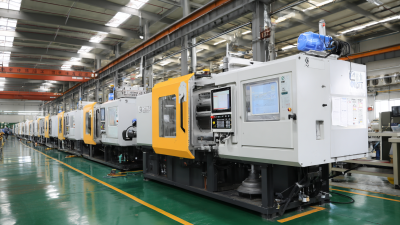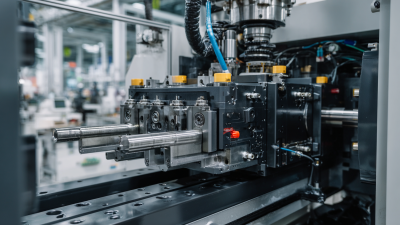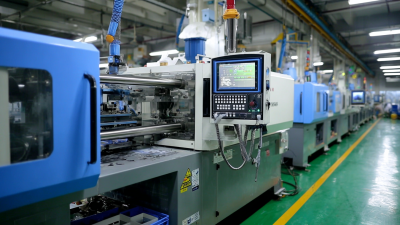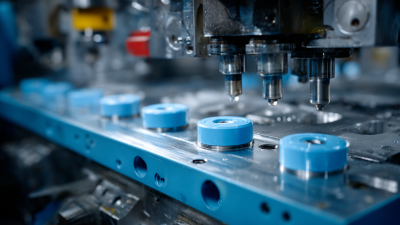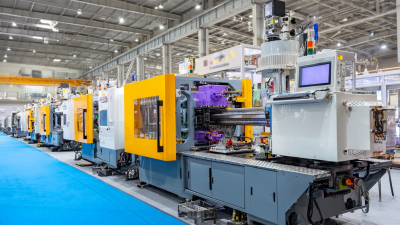In today’s competitive automotive industry, sourcing high-quality components is crucial for ensuring both performance and aesthetics. One of the key areas that manufacturers need to focus on is the procurement of automotive exterior injection plastic parts. These components not only contribute to the overall look of a vehicle but also play a significant role in its durability and functionality. Therefore, partnering with the right supplier is essential. This is where an Automotive Exterior Injection Plastic Part Molding Manufacturer becomes vital. However, with numerous options available in the market, navigating the sourcing process can be challenging. In this blog, we present an ultimate checklist to guide you through the essential steps and considerations when sourcing these parts, ensuring that you select a manufacturer that meets your quality standards and business requirements.

When selecting automotive plastic part suppliers, several key considerations can significantly influence your sourcing strategy. Firstly, it's crucial to evaluate the supplier's manufacturing capabilities. According to a recent report by Markets and Markets, the automotive plastic parts market is expected to reach USD 49.3 billion by 2025, driven by the need for lightweight materials that enhance fuel efficiency. Therefore, choosing suppliers that utilize advanced technologies, such as injection molding and automated processes, can help ensure high-quality, durable components that meet evolving automotive standards.
Another essential factor is the supplier’s compliance with industry regulations and standards. A study from the Society of Automotive Engineers indicates that nearly 40% of recalls stem from non-compliance issues. Suppliers who are ISO certified and adhere to rigorous quality assurance protocols not only mitigate risks but also enhance your brand's reputation. Additionally, consider the supplier’s track record in delivering innovation—companies that invest in R&D are more likely to provide cutting-edge materials that can advance product performance and sustainability in line with current trends.
When sourcing automotive exterior injection plastic parts, understanding the
different types of injection molding processes is crucial.
Injection molding is a popular choice for producing high-quality parts due to its ability to create
complex shapes and designs efficiently. Key types include traditional injection molding,
gas-assisted injection molding, and multi-material injection molding, each offering unique benefits
depending on the application. For instance, gas-assisted injection molding can produce lighter parts
with fewer defects, which is valuable in automotive applications where weight reduction is essential
for performance.
Tips: When selecting manufacturers, ensure they are experienced with the specific
molding type suitable for your project’s requirements. Evaluating their past projects and the
materials they can work with will also help in identifying their expertise in producing
durable and aesthetically pleasing exterior parts.
Moreover, consider the recent advancements in materials. With the rise of 3D printing techniques,
manufacturers are exploring new UV-resistant and weatherproof materials.
These innovations can complement traditional injection molding processes, providing alternatives
for parts that withstand outdoor elements. Ensure your chosen manufacturer
stays updated with these advancements
to leverage the best material options available in the market today.
 When sourcing automotive exterior injection plastic parts, evaluating quality standards and certifications is crucial for ensuring reliability and performance. According to the International Organization for Standardization (ISO), ISO 9001 certification is a key benchmark that indicates a manufacturer's commitment to quality management systems. In fact, studies show that companies with this certification observe a 20% reduction in defective products, which is vital for the stringent requirements of the automotive industry.
When sourcing automotive exterior injection plastic parts, evaluating quality standards and certifications is crucial for ensuring reliability and performance. According to the International Organization for Standardization (ISO), ISO 9001 certification is a key benchmark that indicates a manufacturer's commitment to quality management systems. In fact, studies show that companies with this certification observe a 20% reduction in defective products, which is vital for the stringent requirements of the automotive industry.
Moreover, it is essential to consider the specific standards for automotive parts, such as IATF 16949, which builds upon ISO 9001 and tailors it for automotive manufacturing. This standard emphasizes continuous improvement and defect prevention, which can lead to a 30% increase in operational efficiency, according to the Automotive Industry Action Group (AIAG). Manufacturers that hold this certification demonstrate their ability to meet customer expectations consistently and maintain regulatory compliance, making them more appealing partners for sourcing durable plastic components.
In addition, certifications like RoHS (Restriction of Hazardous Substances) and REACH (Registration, Evaluation, Authorisation, and Restriction of Chemicals) ensure that the materials used in plastic parts are safe and environmentally friendly. These certifications can significantly influence market acceptance, as consumers are increasingly concerned about sustainability and health impacts. Thus, assessing these quality standards and certifications is not just a compliance exercise; it is a strategic decision that can enhance product quality and brand reputation.
When sourcing automotive exterior injection plastic parts, evaluating cost-effectiveness is critical to maintaining competitive edge and sustainable operations. Cost-effectiveness encompasses more than just initial purchase price; it includes factors like quality, durability, and the long-term value derived from the components. Utilizing methods such as life cycle cost (LCC) analysis can provide insights into the total costs associated with a product from production to disposal. This strategic approach is pivotal in minimizing expenses while maximizing performance, especially in the face of fluctuating raw material prices and changing market demands.
In addition, local sourcing has emerged as a key strategy for enhancing cost-effectiveness. By prioritizing suppliers within closer geographical proximity, manufacturers can reduce logistics costs and lead times significantly. This not only fosters stronger supplier relationships but also improves supply chain resilience. Furthermore, integrating advanced technologies like machine learning into supply chain management can streamline procurement processes, enhance supplier evaluations, and ultimately lead to cost reductions. As automotive industries pivot towards more sustainable practices, these strategies will become crucial in sourcing decisions to ensure both economic and environmental viability.
Building strong relationships with top manufacturers is essential for companies sourcing automotive exterior injection plastic parts. The automotive industry is projected to grow to $4 trillion by 2025, leading to increased demand for high-quality components. Establishing partnerships with reputable manufacturers can ensure consistent quality, timely delivery, and the latest technological advancements. According to a report by McKinsey, successful collaboration with top suppliers can reduce lead times by up to 30%, enabling a faster time-to-market for new vehicles.

Tip: When approaching manufacturers, prioritize transparency and communication. Regular updates and feedback can help align goals and foster trust. Moreover, investing time in understanding their production capabilities will allow you to identify potential areas for collaboration, ultimately benefiting both parties.
Building a comprehensive checklist for sourcing can further strengthen these relationships. Consider evaluating manufacturers not only on price and experience but also on their commitment to sustainability and innovation. A study by Deloitte found that companies focusing on sustainable sourcing practices saw an increase in consumer trust by 25%. Engaging with manufacturers who prioritize eco-friendly processes can not only enhance your brand image but also contribute to the overall sustainability goals of the automotive industry.
